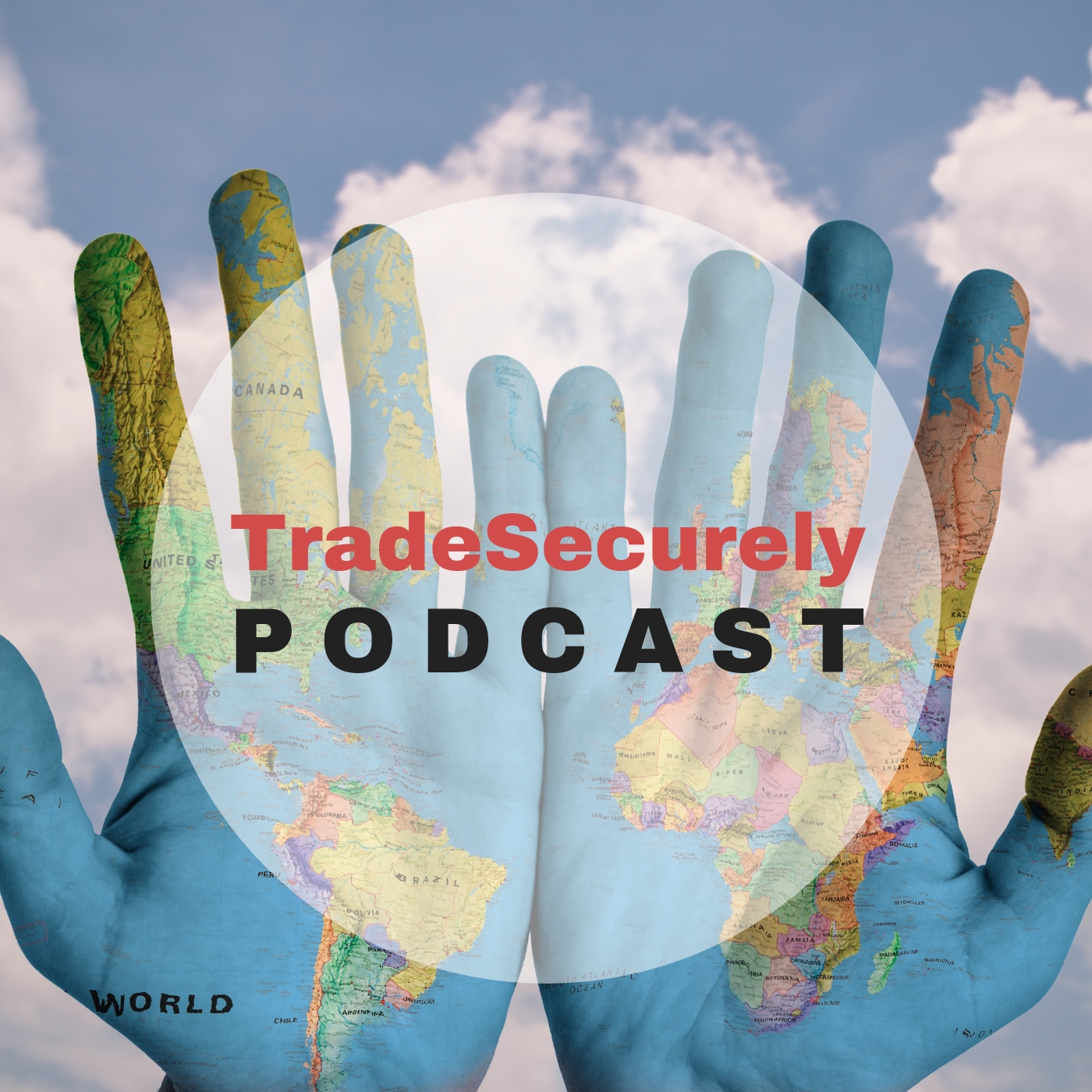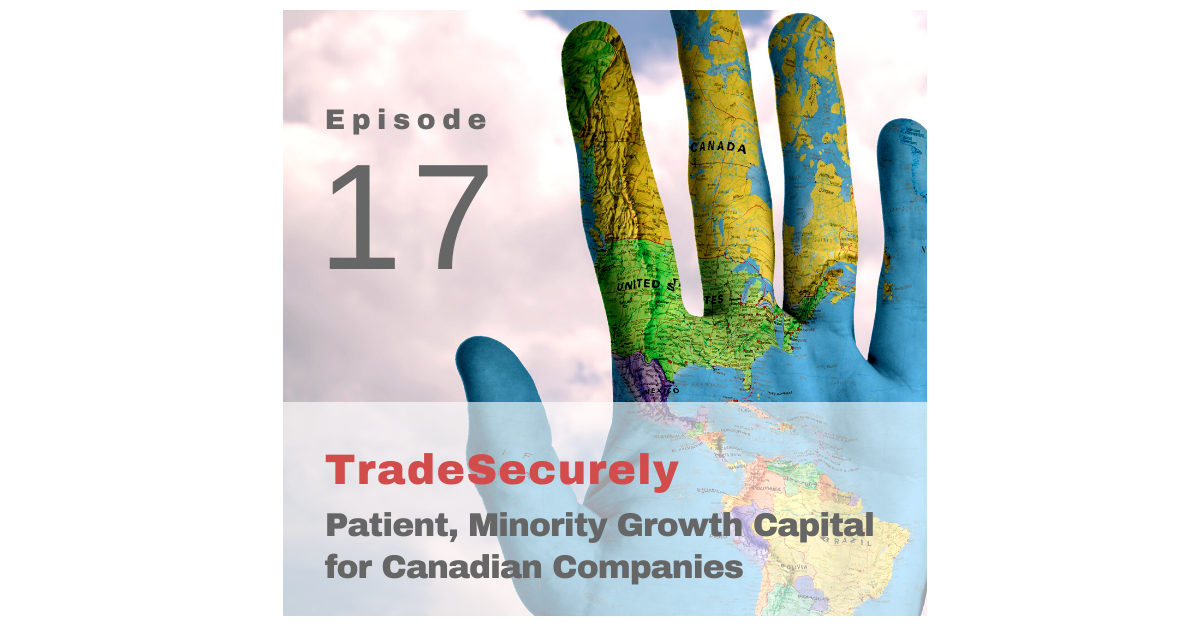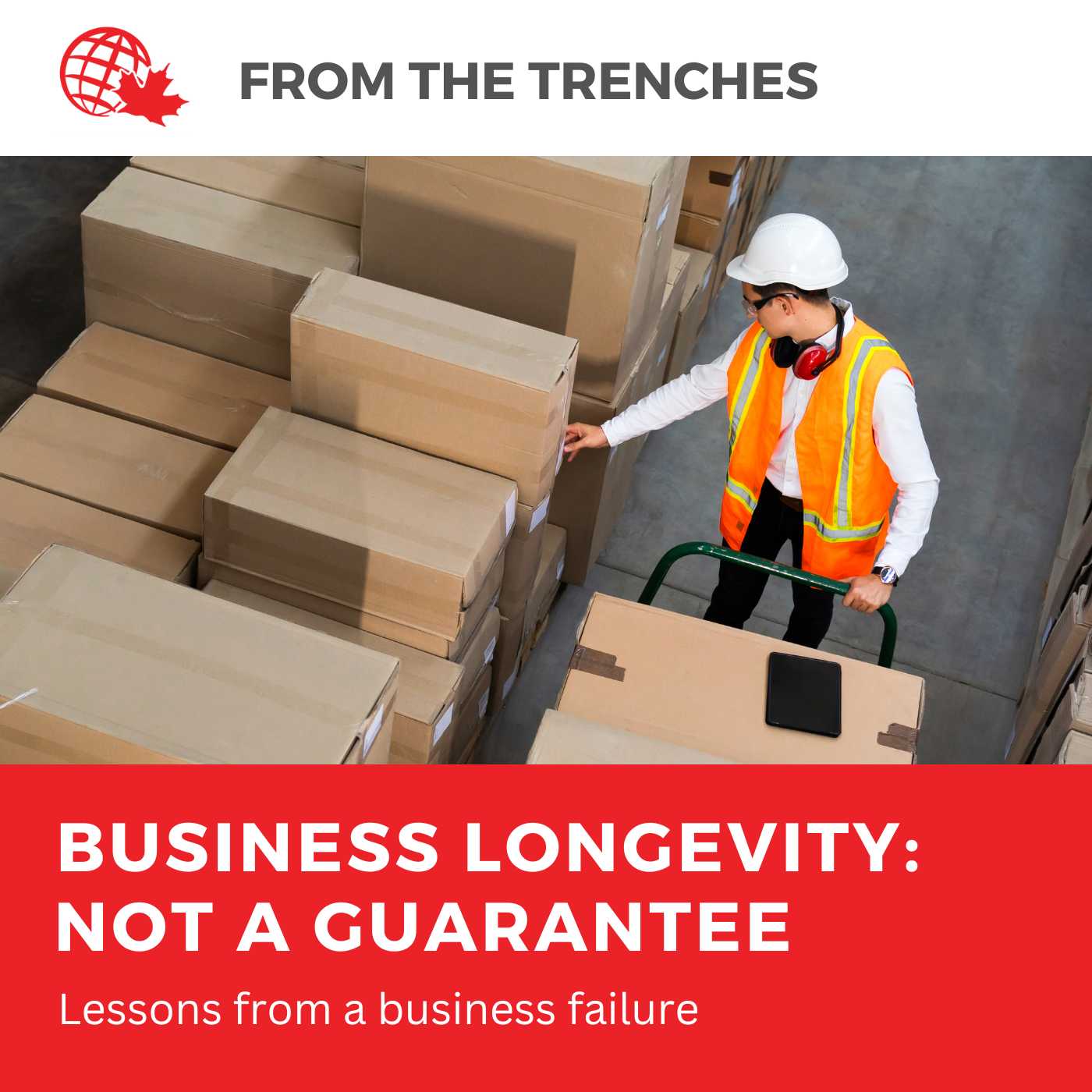[00:00:03] Speaker A: Sometimes it's hard to know what you don't know, and this can lead to issues. In this episode of from the Trenches, we outline how a lack of knowledge and understanding on the part of both the insured and the insurer led to a claims dispute, but in the end, a positive result. Welcome to the Trade Securely podcast. I'm Janet Eastman, and today my guest is Mark hall. He is vice president of credit insurance at Elevate Global Insurance. Good to see you, Mark. How are you?
[00:00:30] Speaker B: Good morning. Good, thanks.
[00:00:32] Speaker A: Good. So this real life story from the trenches. You were approached do your knowledge and expertise by an aerospace products company when, after several years of having credit insurance with an insurer, their very first claim was denied and they were facing a loss of $450,000 us. So they approached you and asked you to investigate. So set up the story for us here.
[00:01:00] Speaker B: So the client, like you said, had been with an insurer for six years, and they had bought their product direct from the insurer, as opposed to buying through a specialist broker like myself.
They had a claim, it was denied, and they really didn't understand why, but they were very upset and wanted out from the existing policy and to go to another policy with one of the other eleven insurers that operate in the canadian marketplace.
They appointed me as their broker of record, and our relationship started.
[00:01:46] Speaker A: Okay, so when you're a broker of record, that just means that you have access to go in and investigate, you know, what went wrong with the claim and then seek out a different insurer for them.
[00:01:57] Speaker B: That's correct.
[00:01:58] Speaker A: Okay, so what did you discover?
[00:02:01] Speaker B: So I found that over the six years of the relationship the two parties had, that the policyholder people had changed several different times, and the underwriter at the insurer had changed several times and they no longer knew each other at all. And the policyholder really didn't understand what the policy did, how it worked, and what they could claim or could not claim on their policy.
[00:02:39] Speaker A: So over the six years, did they actually adjust their policy at all or did it just renew? And that's part of the problem, because everybody didn't really know what was insured anymore.
[00:02:51] Speaker B: Well, that was the case that the insurer and the policyholder never really had a discussion about how the business worked, and therefore no changes were ever made to the policy, and the policyholder really didn't understand that they could make changes.
[00:03:10] Speaker A: Oh, okay. So when you investigated, what were some of the big things that you discovered? I mean, aside from the fact that they neither knew what was going on, you actually got a chance to talk to the underwriter, correct?
[00:03:23] Speaker B: That's correct. There are two parties to every insurance contract, the policyholder and the insurer. And if they don't know each other, they can't possibly operate in tandem to benefit both sides of the equation. So after five finding out who the underwriter was, we had long conversations about how the policyholders operations worked and what would need to change to make this policy operational for both parties.
[00:04:00] Speaker A: Okay, so in the end, you did manage to get, you negotiated a settlement for the insured.
Tell me how this worked.
[00:04:10] Speaker B: So through all of the discussions with the policyholder and the underwriter, it turned out that both parties had made errors which led to the policy or the claim being denied.
Once both parties realized what had happened, there was a settlement negotiated, and it turns out that both parties walked away happy enough with what transpired.
[00:04:49] Speaker A: Okay, so the initial claim was $450,000 us, but the negotiated settlement was $300,000 us.
Both parties walk away happy. But you also did a bit of investigating and looked at the structure of the policy and how everything had gone down, and you did manage to get them a bit of a refund on what they had paid over the years. How did that work?
[00:05:15] Speaker B: Well, it turned out that through a number of different people moving through the same position at the policyholder, that they never understood what was covered and what was not covered under the policy.
They were paying premium for something which they were not covered for over a period of several years. And with the existing personnel at the policyholder helping me, we figured out how much premium they had paid for product that they had never been covered for. And once we presented that to the insurer, the insurer refunded that amount of premium, which was about $90,000 us.
[00:06:03] Speaker A: Wow.
Okay. So let's talk about the role of the broker here, because as you said, right at the very start, the customer went direct to the insurer and negotiated the policy.
And it turned out that they didn't get really what they needed. So let's talk about the role of the broker and the expertise that the broker brings to the table.
[00:06:28] Speaker B: So a specialist broker in this industry has the knowledge and expertise to negotiate terms and conditions for a policyholder that the policyholder will never really understand.
They don't know what exists out there, what the insurer will do, what they won't do, and they don't speak the same terms as an underwriter will. So a specialist broker, knowing all of that can bring all of that knowledge and expertise and lots of other things to the table that the insurer will benefit from for years.
And that's the difference between buying a product direct from an insurer and buying it through a specialist broker. And the one thing to really keep in mind is that employing a specialist broker to work on your behalf does not cost you anything.
The insurer pays us a commission for all of the business we bring to them.
[00:07:37] Speaker A: Okay. So that's, you know, I wonder if people really realize that, that there is no cost to having that expertise that you can go to and say, I really don't understand what this is. Why do I need that? And they don't have to pay for that advice. Kind of like you would have to pay for a lawyer, correct?
[00:07:56] Speaker B: That's correct, yeah.
[00:07:57] Speaker A: Okay. So one of the things that I think is really interesting here is that part of what you were supposed to do, you were supposed to investigate, find out what the problem was, but then you were also supposed to go and find another insurer. How did that work out?
[00:08:13] Speaker B: So through this whole process, I had taken the policyholders information, put it on an application, and sent it out into the marketplace for quotes from other insurers. At the same time, we fixed a lot of the issues that were problematic for the policyholder with their existing insurer. As it turned out, once we had all of the quotes back and we had an understanding with the current insurer, the current insurer was the best place for this policyholder to be.
[00:08:52] Speaker A: Okay. So in the end, the customer stays with the insurer. You remain as their broker of record. Right?
[00:09:01] Speaker B: Right.
[00:09:02] Speaker A: And anytime there's a question or an issue or something that changes within the business, you're aware of that, and you can make sure the policy is operating the way it needs to be.
[00:09:14] Speaker B: That's correct. I'm copied on everything that goes on with that policyholders policy, and we can address any issue that they don't agree with or they don't understand, and we can deal with the underwriter at the same time to possibly change what the message is that they're trying to deliver.
[00:09:40] Speaker A: Okay. And one of the problems that you mentioned was people change in a company. Underwriters change all the time. So you just go in and reeducate everybody so that everybody's up to speed on what is working here?
[00:09:52] Speaker B: That's correct. Like I said before, there are two parties to each insurance contract, and if they don't know who and what they do, then they're going to run into problems. It's my job to manage those two relationships and make sure that everybody's happy and has a long standing relationship down the road.
[00:10:17] Speaker A: Okay, so I guess I want to ask you one last question. And it would be what for you, is the lesson learned in this story? I mean, it was great that this company went and had trade credit insurance, but what's the real lesson learned here?
[00:10:35] Speaker B: The lesson is that insurance is a complicated product.
It's not something that you should buy on your own because you just won't know everything that you need to know about it. Using a specialist broker like myself gets you benefits that you will never understand until you run into a problem and you see the value that we bring to the table.
[00:11:03] Speaker A: You know, I have to agree with you because I bought insurance in the past, right? And, you know, people start talking about things and you're like, your eyes glaze over and you're like, I have no idea what they're saying, but you don't want to feel stupid and ask a question. But that's what the broker is there for, to answer those questions. Because insurance isn't just a blanket coverage. It's like there's a lot of stuff going on under the blanket that your broker understands that maybe you don't, right?
[00:11:31] Speaker B: That's correct.
[00:11:33] Speaker A: Okay, Mark, I love this story, and it just shows the power of the broker and the fact that you need the expertise sometimes when you're negotiating these things so that you can get the best deal. So thank you very much for sharing the story.
[00:11:47] Speaker B: Good day.
[00:11:48] Speaker A: Okay, Mark hall is vice president, President of credit insurance at Elevate Global Insurance, and he is a longstanding member of the Receivables Insurance association of Canada, otherwise known as REAC. And we'll have more stories from the trenches on the trade securely podcast, so you can watch for them on our website
[email protected] you can follow us on LinkedIn and X, and you can also watch our videos on YouTube. I'm Janet Eastman. Thanks very much for watching.


